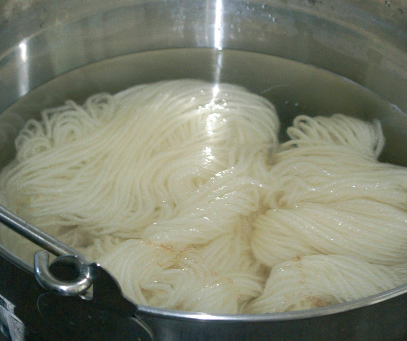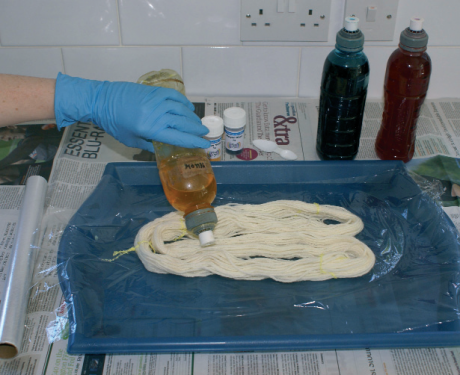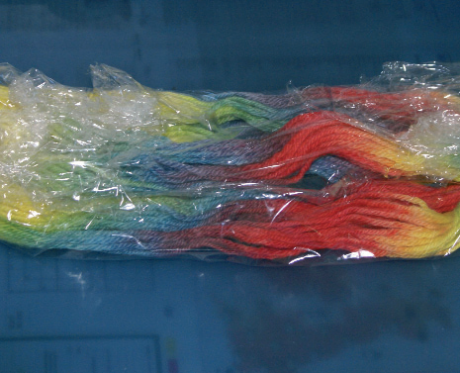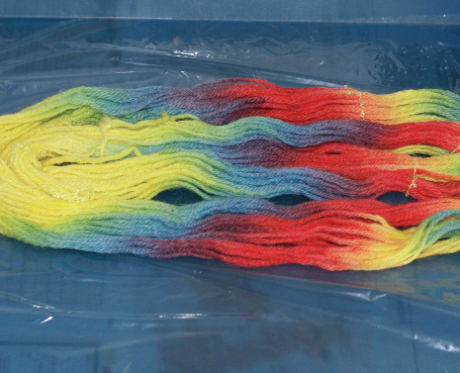Debbie Tomkies of DT Craft and Design tells us all about the dyeing process and how she chooses which colours to use in her special yarns!
Where do you get your inspiration for your dyed yarns from?
I am inspired by all kinds of things from landscapes, photographs and paintings to something as everyday as oil in a puddle! For me it’s about ignoring the subject and focusing solely on the colours and how they combine. I can usually spot a good colourway at 50 paces!
What kinds of dyes do you usually use for your yarns?
Normally I use between one and three colours per skein – however one colour may be made up of several different dyes and I also vary the concentration of dyes for different effects. I rarely use a dye ‘straight from the pot’, as I find it much more interesting to create my own shades. My preferred dyes are Procion MX dyes because they give fantastic colours whilst being very light and colourfast. Procion dyes can be used on any natural fibre such as cotton, camel, silk, wool, linen and all sorts of blends, too. They are an excellent choice for beginners and experienced dyers alike as only one set of dyes is needed for all fibres.
What is the process for dyeing yarn?
My process varies depending on the effect I’m looking for, but one of my favourite techniques is yarn-painting. This is a simple method but produces exciting results! There are four stages to the process:

1) Soaking the dye – the yarn needs to be wet for the dye to penetrate properly.

2) Applying the dye – this is the fun bit! I like painting stripes of colour and blending them to create extra colours. This rainbow was dyed using just red, yellow and blue and the other colours were created where the colours blended.

3) Cooking – animal fibres such as wool need to be cooked to permanently fix the dye. I wrap my yarn in clingfilm and cook it in the microwave, but you can use a hob, oven or steamer.

4) Cool, rinse, dry and enjoy – then it’s simply stand back and enjoy your fabulous, unique yarn!
Before you take up the dyeing challenge, remember that although Procion dyes are non-toxic you should always read the health and safety guidelines before doing any dyeing, and remember not to
use your cooking utensils and pots for dyeing.
To get more tips on dyeing your own yarn, or to pick up a dyeing kit of your own, call DT Crafts on 0161 718 3818 or go to www.dtcrafts.co.uk for prices and more information.





_333_180_c1.png)
_333_180_c1.png)

_333_180_c1.png)
 Baby
Baby
 Toys
Toys
 Garments
Garments
 Crochet
Crochet
 Homewares
Homewares
 Dolls
Dolls



Share